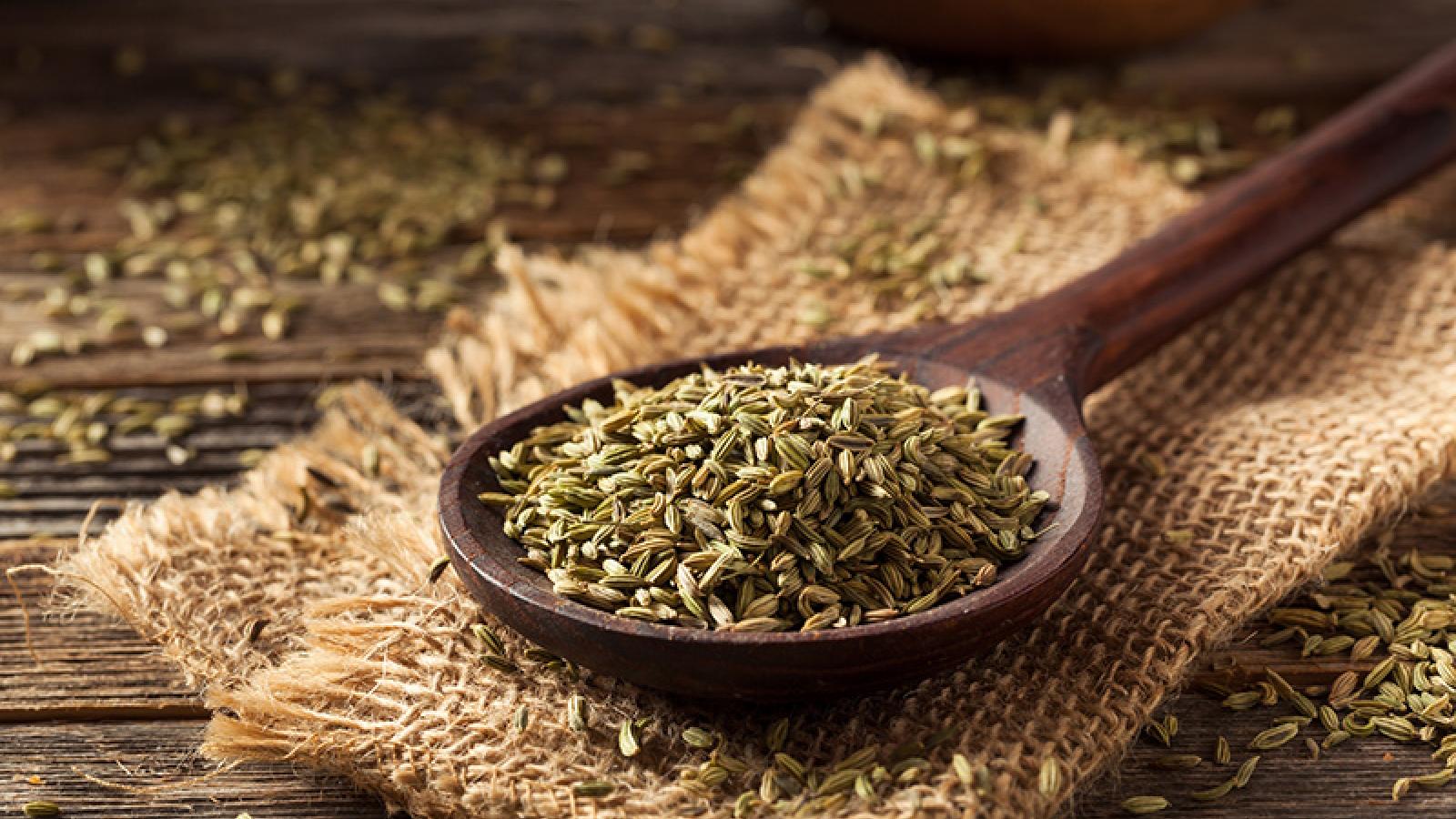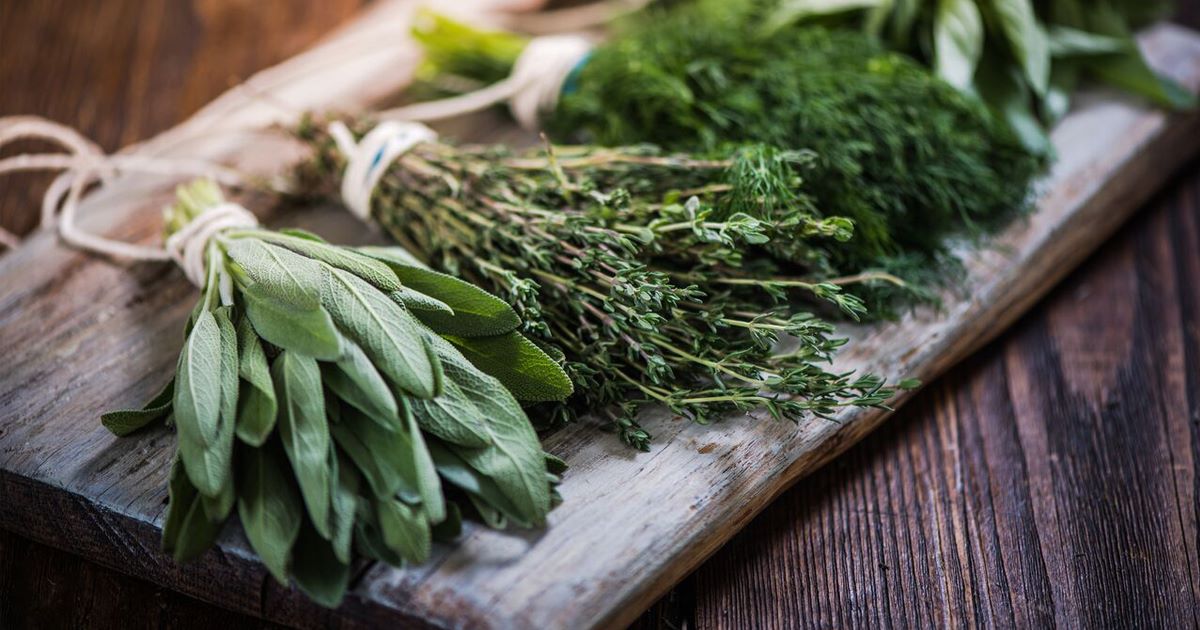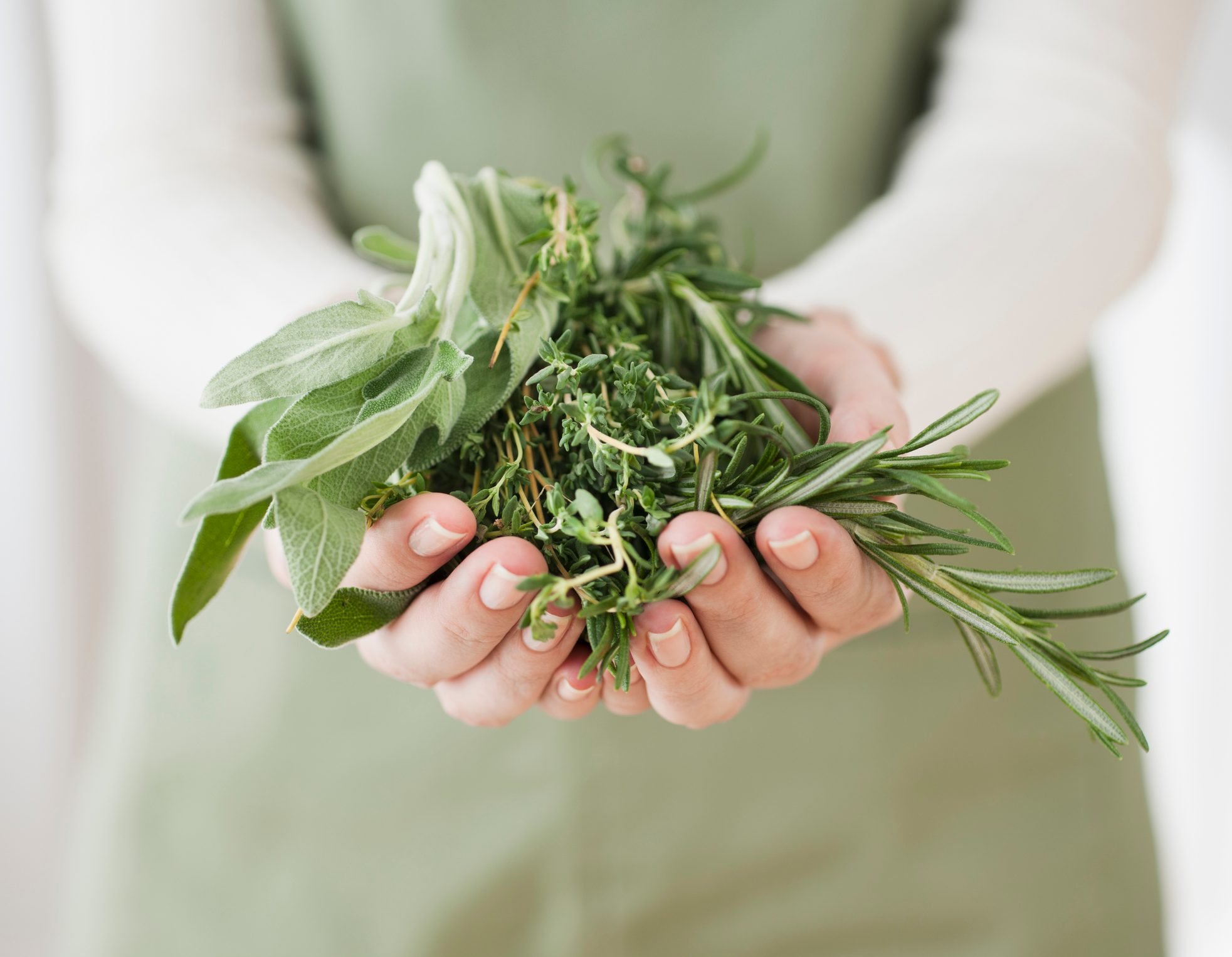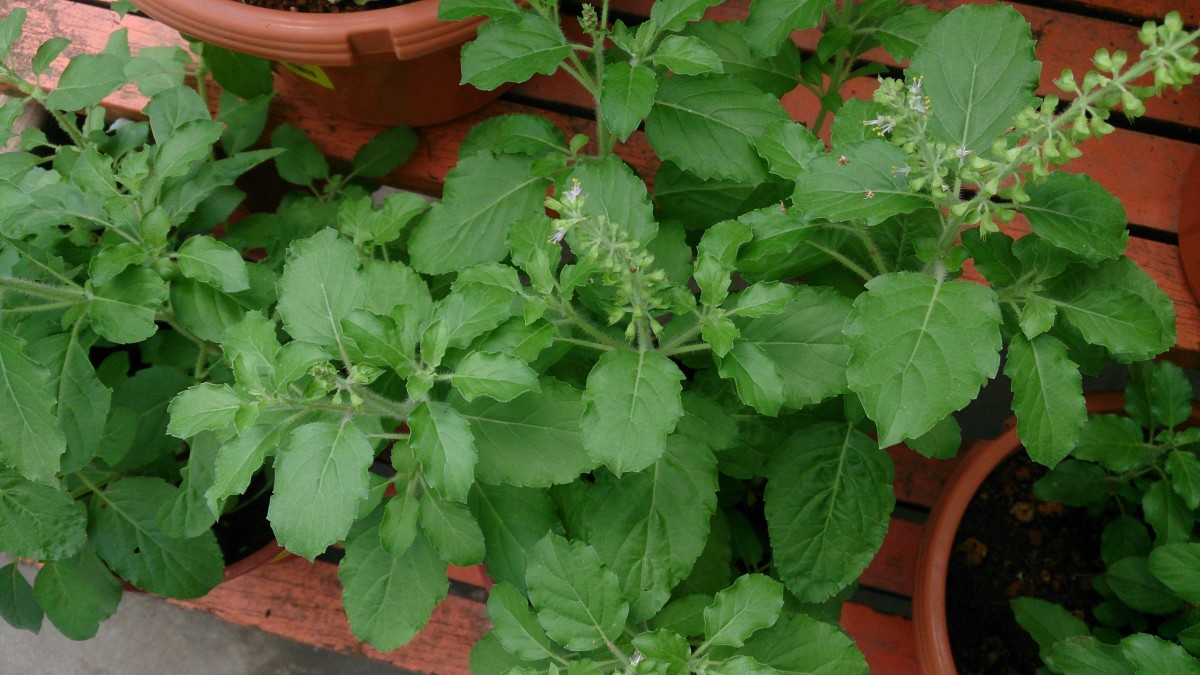Home>Gardening News and Trends>Gardening Trends>What Herbs And Spices Are Good For Dogs


Gardening Trends
What Herbs And Spices Are Good For Dogs
Modified: January 22, 2024
Discover the latest gardening trends and find out which herbs and spices are beneficial for your furry friends. Enhance your dog's health with natural remedies.
(Many of the links in this article redirect to a specific reviewed product. Your purchase of these products through affiliate links helps to generate commission for Chicagolandgardening.com, at no extra cost. Learn more)
Table of Contents
Introduction
Welcome to the world of herbs and spices for dogs! As a dog parent, you want to ensure that your furry friend stays healthy and happy, and incorporating herbs and spices into their diet can be a natural and beneficial way to do just that. Not only do herbs and spices add flavor and variety to their meals, but they also offer a range of potential health benefits.
It’s important to note that not all herbs and spices are safe for dogs, so it’s essential to familiarize yourself with the ones that are beneficial and those that should be avoided. By understanding how to incorporate these natural ingredients into your dog’s diet properly, you can enhance their overall well-being and support specific health concerns.
In this article, we will explore the numerous benefits of herbs and spices for dogs, discuss important considerations before feeding them to your furry friend, provide a list of safe herbs and spices for dogs, and highlight the ones to avoid. We will also offer practical tips on how to incorporate these ingredients into your dog’s diet, ensuring their health and happiness.
So, let’s dive into the world of herbs and spices for dogs and discover the wonderful ways they can enhance your furry friend’s life!
Benefits of Herbs and Spices for Dogs
Harnessing the power of herbs and spices can provide a range of benefits for your furry companion. Let’s explore some of the advantages they offer:
- Enhanced Digestion: Certain herbs and spices have been shown to support better digestion in dogs. For example, ginger can alleviate nausea and promote healthy digestion, while fennel can reduce bloating and soothe an upset stomach.
- Anti-Inflammatory Properties: Many herbs and spices possess anti-inflammatory properties that can help reduce inflammation and discomfort in dogs. Turmeric, for instance, contains curcumin, a powerful compound known for its anti-inflammatory effects.
- Boosted Immunity: Some herbs and spices have immune-boosting properties that can help strengthen your dog’s immune system. Garlic, when given in small amounts, may enhance the immune response, while oregano contains antimicrobial properties that can help fight off infections.
- Improved Joint Health: Certain herbs and spices can promote better joint health for dogs, especially those suffering from arthritis or other joint-related issues. Boswellia, for example, is known for its anti-inflammatory properties and can help reduce pain and discomfort in dogs with joint problems.
- Natural Pest Repellent: Some herbs and spices have natural pest-repellent properties that can help protect your dog from fleas, ticks, and other pesky insects. Rosemary, when used topically, can act as a natural repellent and keep those unwanted critters at bay.
These are just a few examples of the potential benefits that herbs and spices can offer your dog. Incorporating them into their diet can provide a natural way to support their overall health and well-being. However, it’s important to remember that every dog is different, and it’s always recommended to consult with your veterinarian before introducing any new herbs or spices into your dog’s diet.
Important Considerations Before Feeding Herbs and Spices to Your Dog
Before incorporating herbs and spices into your dog’s diet, there are some important factors to consider:
- Consult with Your Veterinarian: It’s always wise to consult with your veterinarian before introducing any new herbs or spices into your dog’s diet. They can provide specific guidance based on your dog’s health, breed, and any existing medical conditions.
- Start Slowly and Monitor: When introducing herbs and spices to your dog’s diet, it’s best to start with small amounts and gradually increase over time. This allows you to monitor your dog’s reaction and ensure they tolerate the new ingredients well.
- Know Your Dog’s Allergies: Just like humans, dogs can have allergies or sensitivities to certain ingredients. Before incorporating any new herbs or spices, be aware of any known allergies your dog may have and avoid those ingredients accordingly.
- Avoid Potential Toxic Herbs and Spices: Some herbs and spices are toxic to dogs and should be avoided altogether. Common examples include onions, garlic (in large amounts), nutmeg, and certain varieties of mint. Always do your research and make sure you’re using safe ingredients.
- Avoid Artificial Additives: When selecting herbs and spices for your dog, choose organic and natural options. Avoid herbs and spices that are loaded with artificial additives, preservatives, or excessive salt, as these can be detrimental to your dog’s health.
- Observe Any Changes in Behavior or Health: As you introduce new herbs and spices, carefully observe your dog for any changes in behavior or health. If you notice any adverse reactions, such as vomiting, diarrhea, or unusual lethargy, discontinue use and consult with your veterinarian.
By taking these important considerations into account, you can ensure the safety and well-being of your furry friend when incorporating herbs and spices into their diet. Remember, every dog is unique, so what works for one may not work for another. Always prioritize your dog’s health and consult with a professional to make the best choices for your beloved pet.
Safe Herbs and Spices for Dogs
When it comes to selecting safe herbs and spices for your dog, there are several options to consider. Here are some commonly used herbs and spices that are generally safe for dogs:
- Parsley: Parsley is not only a flavorful herb, but it also has fresh breath benefits for dogs. It contains vitamins and minerals that can help support their overall health.
- Basil: Basil is a fragrant herb that can add a delicious aroma to your dog’s meals. It’s also a good source of antioxidants, vitamins, and minerals.
- Oregano: Oregano is known for its antimicrobial properties and can help support your dog’s immune system. It’s best to use oregano in moderation to avoid any potential adverse effects.
- Thyme: Thyme is a versatile herb with antifungal and antibacterial properties. It’s a great choice for keeping your dog’s digestive and respiratory systems healthy.
- Ginger: Ginger has a soothing effect on the digestive system and can help alleviate nausea and motion sickness in dogs. It’s best to introduce ginger slowly, as some dogs may be sensitive to its strong flavor.
- Cinnamon: Cinnamon can be beneficial for dogs with diabetes or inflammation. It’s important to use cinnamon in moderation, as too much can cause liver toxicity in some dogs.
These are just a few examples of safe herbs and spices for dogs. However, it’s crucial to remember that every dog is unique, and individual sensitivities may vary. Always start with small amounts and observe how your dog responds before incorporating any new herbs or spices into their diet. If you have any concerns or doubts, consult with your veterinarian for personalized advice.
Remember, moderation is key. While herbs and spices can offer numerous benefits, it’s important not to overdo it. Too much of a good thing can have negative effects on your dog’s health. Always maintain a balanced diet and prioritize your dog’s overall nutritional needs.
Herbs and Spices to Avoid Giving to Your Dog
While many herbs and spices can be safely incorporated into your dog’s diet, there are some that should be avoided due to their potential toxicity or adverse effects. Here are some herbs and spices to avoid giving to your dog:
- Onions and Garlic: Both onions and garlic can be harmful to dogs, especially when consumed in large amounts. They contain compounds that can damage a dog’s red blood cells and lead to anemia.
- Nutmeg: Nutmeg contains a compound called myristicin, which can be toxic to dogs in large quantities. It can cause symptoms like hallucinations, high blood pressure, and even seizures.
- Mint: While certain varieties of mint, such as peppermint, can be beneficial for dogs in small amounts, other types, like pennyroyal and menthol, can be toxic. Avoid using mint-based products that contain high concentrations of essential oils.
- Rosemary Essential Oil: While fresh rosemary is generally safe for dogs, concentrated rosemary essential oil can be too potent and may cause adverse effects. It’s best to avoid using concentrated essential oils directly on your dog.
- Salt and Artificial Additives: While not technically herbs or spices, it’s crucial to avoid high levels of salt and artificial additives in your dog’s diet. Excessive salt intake can lead to dehydration and other health issues, while artificial additives can be harmful to their overall well-being.
It’s important to note that this is not an exhaustive list of herbs, spices, and ingredients to avoid. Always do your research and consult with your veterinarian if you’re unsure about any specific herb, spice, or ingredient before offering it to your dog.
Remember, the key to keeping your dog safe is to provide them with a balanced and nutritious diet while avoiding any potentially harmful substances. When in doubt, it’s best to err on the side of caution and prioritize your dog’s well-being above all else.
How to Incorporate Herbs and Spices into Your Dog’s Diet
Introducing herbs and spices into your dog’s diet can be done in a variety of ways. Here are some tips on how to incorporate these beneficial ingredients into your furry friend’s meals:
- Start with Small Amounts: When introducing herbs and spices to your dog, start with small amounts and gradually increase over time. This allows their digestive system to adjust and ensures they tolerate the new flavors well.
- Use Fresh, Dried, or Powdered Forms: Fresh herbs can be a great addition to your dog’s meals, but if they’re not readily available, dried or powdered forms can also be used. Just make sure to use high-quality, organic products without any additives or artificial ingredients.
- Add to Homemade Meals: If you prepare homemade meals for your dog, herbs and spices can easily be incorporated into their recipes. For example, you can add a pinch of turmeric, a sprinkle of parsley, or a dash of cinnamon to their cooked food.
- Mix with Commercial Dog Food: If you feed your dog commercial dog food, you can still enhance their meals with herbs and spices. Simply mix a small amount into their food to add flavor and nutritional benefits.
- Create Homemade Treats: Another fun way to incorporate herbs and spices into your dog’s diet is by making homemade treats. You can experiment with recipes using dog-friendly ingredients like pumpkin, cinnamon, and peanut butter for a tasty and nutritious snack.
- Consider Supplements: If you’re unable to incorporate enough herbs and spices into your dog’s diet through their meals, you may consider using supplements. There are various herbal and spice-based supplements available specifically designed for dogs.
- Monitor Your Dog’s Reaction: As you introduce new herbs and spices, pay attention to your dog’s reaction. Some dogs may have sensitivities or allergies to certain ingredients. If you notice any adverse effects, discontinue use and consult with your veterinarian.
Remember, moderation is key when incorporating herbs and spices into your dog’s diet. While these ingredients can offer numerous benefits, it’s important not to overdo it. Always maintain a balanced and nutritious diet that suits your dog’s specific needs.
By following these tips and guidelines, you can safely and effectively incorporate herbs and spices into your dog’s diet, providing them with added flavor, variety, and potential health benefits.
Conclusion
Incorporating herbs and spices into your dog’s diet can be a wonderful way to enhance their meals and provide potential health benefits. From improved digestion to boosted immunity and joint support, these natural ingredients offer a wide range of advantages. However, it’s important to remember that not all herbs and spices are safe for dogs, and individual sensitivities may vary. Always consult with your veterinarian before introducing any new herbs or spices into your dog’s diet.
When selecting herbs and spices, prioritize organic, natural options without any artificial additives or excessive salt. Start with small amounts and monitor your dog’s reaction to ensure they tolerate the new flavors well. It’s crucial to avoid toxic ingredients such as onions, garlic, nutmeg, and certain types of mint, as they can be harmful to your dog’s health.
There are various ways to incorporate herbs and spices into your dog’s diet, such as adding them to homemade meals, mixing them with commercial dog food, or creating homemade treats. Remember to introduce these ingredients gradually and observe any changes in behavior or health. If you have any concerns or doubts, consult with your veterinarian for personalized advice.
By taking these considerations into account, you can safely and effectively incorporate herbs and spices into your dog’s diet, offering them flavor, variety, and potential health benefits. Prioritize your dog’s overall well-being, and maintain a balanced and nutritious diet that suits their individual needs. With proper care and attention, your furry friend can enjoy the benefits of herbs and spices for a healthier and happier life.










